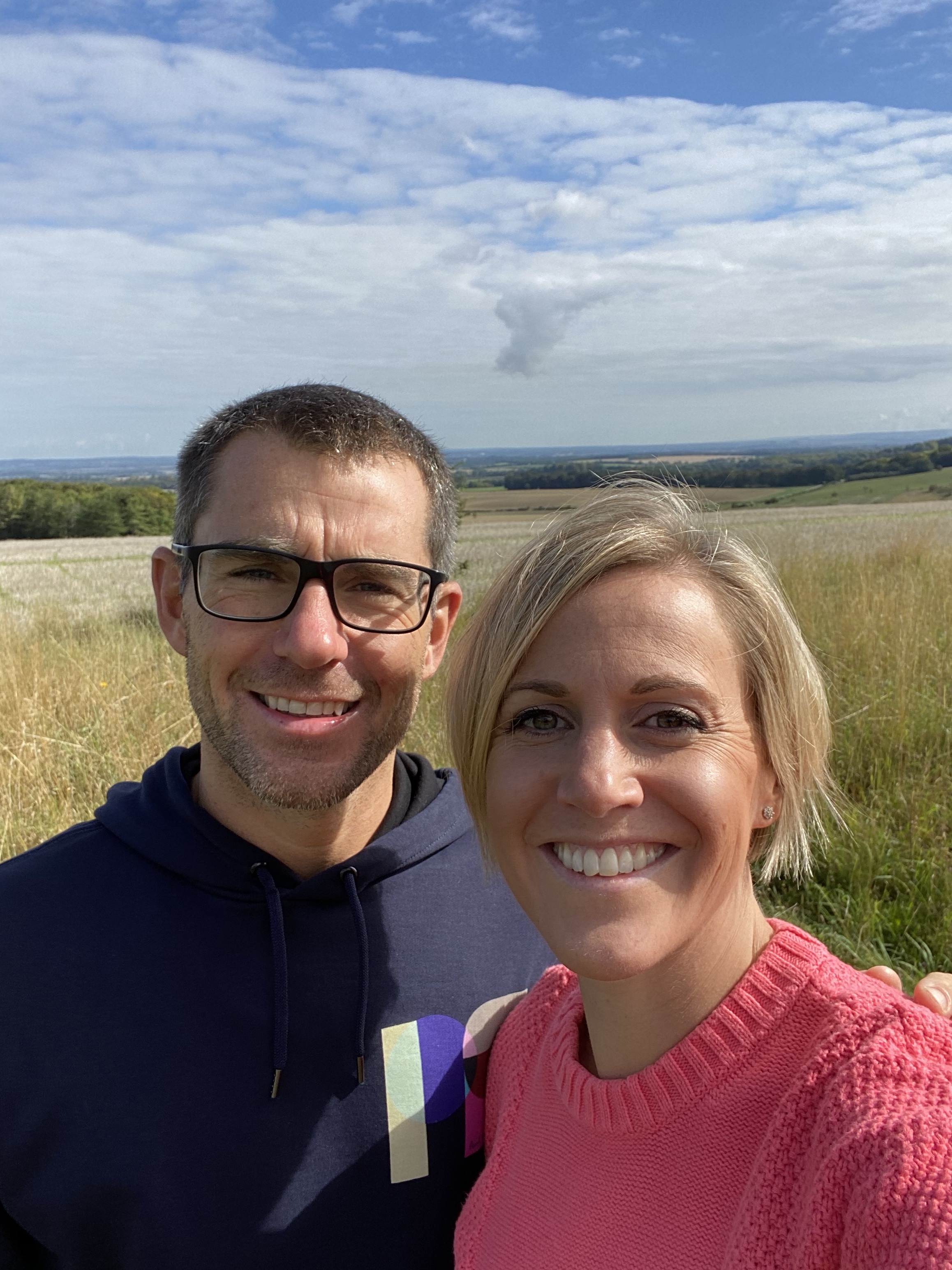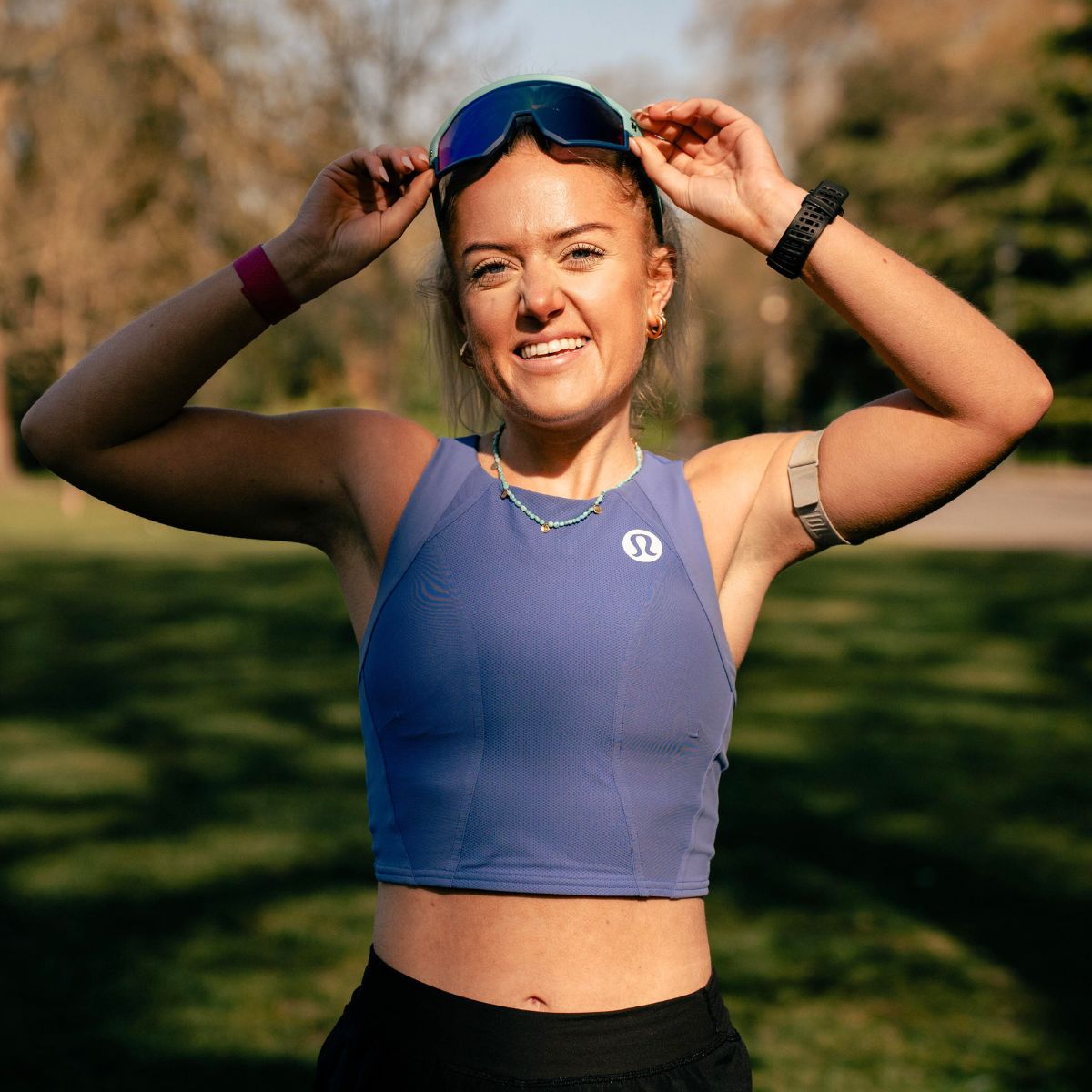Cervical cancer could become "rare disease" as study proves HPV vaccine saves thousands of lives each year
Keen to know more about the different types of gynaecological cancer? Here are the 5 different types to know about and how to spot them, according to an expert

Keen to know more about the different types of gynaecological cancer? Here are the 5 different types to know about and how to spot them, according to an expert
Did you know? Over 21,000 women in the UK are diagnosed with a form of gynaecological cancer every year and survival rates vary vastly between the different types. While around 72% of women survive womb cancer, only 35% survive ovarian cancer.
Today alone, 57 women will be diagnosed with a gynaecological cancer and 21 women will die from the disease.
Yet in historical news, groundbreaking research published in The Lancet has concluded that the HPV vaccine rolled out in 2008 is effective at preventing cervical cancer and has so far saved the lives of thousands of women.
Research shows that cervical cancer rates were 87% lower in the women who were vaccinated. Without the HPV vaccination, researchers share that 36,000 women could have been affected.
It's the first breakthrough vaccination of its kind, directly preventing cervical cancer by using the virus that actually causes it, HPV.
Cancer Research UK has shared that the findings are better than expected, and this could mean that cervical cancer becomes a "rare disease."
Keen to read up on the different types of gynaecological cancer? Here, doctor John Butler, a consultant gynaecological oncology surgeon at The Royal Marsden and medical director of The Lady Garden Foundation shares your complete gynae cancer cheat sheet. Keep reading to find out what to get checked - and when - in order to keep your risk level at a minimum.
Marie Claire Newsletter
Celebrity news, beauty, fashion advice, and fascinating features, delivered straight to your inbox!
Also worth noting here: many of the symptoms listed below are not exclusive to gynaecological cancers, but it’s vital that you get them checked over by a doctor to rule it out.
Don't miss our guides to the symptoms of skin cancer, vaginal care tips and breast cancer signs, while you're here:
Gynaecological cancer: your guide
What is the definition of gynaecological cancer?
In short, gynaecological cancer is any cancer that starts in a woman's reproductive organs - FYI, that includes your vagina, womb or uterus, fallopian tubes and ovaries.
Gynaecological cancer symptoms and types
There are five different types of gynaecological cancer, according to the surgeon.
"They span ovarian, cervical, womb, vaginal and vulval," shares Butler. Do note here: "womb cancer is the most common and vaginal is the rarest, with 9,400 and 250 new cases diagnosed respectively in the UK every year," he explains.
Worried that you may be experiencing some form of gynaecological cancer or just want to read up on the main symptoms? You're in luck - here, the surgeon breaks down the most common red flags to know about:
1. Cervical cancer
Cases diagnosed each year: Over 3,000
What are the main cervical cancer symptoms?
- Vaginal bleeding
- Discomfort or pain during sex
- An unpleasant smelling vaginal discharge.

2. Ovarian cancer
Cases diagnosed each year: Around 7,300
What are the main ovarian cancer symptoms?
It can be difficult to recognise the symptoms in the early stages, which is why most women are not diagnosed until the disease has spread.
- Irritable Bowel Syndrome
- PMS
- Increased abdominal size and persistent bloating - N.B. here, not bloating that comes and goes.
- Persistent pelvic and abdominal pain
- Unexplained change in bowel habits
- Difficulty eating and feeling full quickly, or feeling nauseous
- Back pain
- Needing to pass urine more frequently than usual
- Pain during sex.
3. Vulval cancer
Cases diagnosed each year: Over 1,300
What are the main vulval cancer symptoms?
- A lasting itch
- Pain or soreness
- Thickened, raised, red, white or dark patches on the skin of the vulva
- An open sore or growth visible on the skin
- A mole on the vulva that changes shape or colour
- A lump or swelling in the vulva.
4. Womb cancer
Also known as uterine and endometrial cancer.
Cases diagnosed each year: 9,300
What are the main womb cancer symptoms?
- Abnormal vaginal bleeding, such as post-menopausal or irregular vaginal bleeding
- Bleeding that is unusually heavy
- Vaginal discharge from blood-stained to light or dark brown
5. Vaginal cancer
Cases diagnosed each year: Around 250
What are the main symptoms of vaginal cancer?
- Unexpected bleeding, e.g. between periods, after menopause or after sex
- Vaginal discharge that smells or is blood-stained
- Vaginal pain during sex
- A vaginal lump or growth that you, or your doctor, can feel
- Persistent pelvic and vaginal pain.
Again, do note here: these signs are often not overly easy to notice and symptoms are, more often than not, signs of different conditions, too. "Gynaecological cancers can easily be overlooked," explains Butler.
Bottom line: "It’s vital women of all ages get to know their bodies and what to look for, as the earlier a cancer is found, the easier it is to treat and the higher the chance of successful treatment," he explains. "This means it is really important to get anything unusual for you that persists checked out by a GP."

Gynaecological cancer resources
Often it's helpful to hear from others who have been through a diagnosis, Butler explains. "You can find the experiences of women with gynaecological cancer on The Royal Marsden’s website, including videos of patients who were all diagnosed at the age of 27," he shares.
In addition to the information from local hospital teams, cancer charities provide up to date information on diagnosis, treatments and side effects. These include:
- Cancer Research UK
- Ovarian Cancer Action
- Target Ovarian Cancer
- The Eve Appeal
- The British Gynaecological Cancer Society
- Macmillan Cancer Support.
"Cancer will forever be part of my story"
Katie Wilkins' story starts back in 2003 as a second year uni student.
"My story starts back in 2003. I’m living the student life at Cardiff University, and am right in the middle of second year exams. I’ve been back and forth to the doctors with shooting pains in my tummy, each time being sent away with different solutions - from antibiotics for a bladder infection, to paracetamol for period pain."
"One morning, when I can barely climb out of bed, my housemates take me to A&E and I’m admitted to hospital. Turns out it was neither an infection nor period pain, but instead two borderline ovarian cysts - one the size of an orange, the other a grapefruit (or so I’m reliably informed afterwards)."
"That summer, I have surgery to remove them and like many 22 year olds with the world at her fingertips, I crack on with enjoying life, finishing my degree, climbing the career ladder and feeling invincible."
"Fast forward 17 years and it’s April 2020. I’m married, living in Jersey, and there’s a global pandemic kicking off. Those familiar shooting pains had started again... but it’s nothing, right?"
"Unfortunately, the test says otherwise, and with the pain getting worse, I book an appointment with the doctor. Because of my medical history, I know a CA125 blood test, a blood test which checks for raised levels of a protein called CA125, is the main indicator, and I make sure this is taken, with a referral for a scan. Thankfully no antibiotics or paracetamol suggested this time."
"Within a week, I’m lying on the bed at the radiography clinic, knowing immediately what’s going on inside. The radiographer’s face said everything. The cysts are back… But the C-word still never crosses my mind."
"The next few weeks are a blur of consultations and referrals. Because Jersey is a small island, I’m quickly referred to Mr John Butler, Consultant Gynaecological Oncology Surgeon, at The Royal Marsden in London, where more ‘complex’ cases are taken on."
"Mr Butler has confirmed I will need surgery that will remove both ovaries. There’s no time to sit back - my scans show changes and they wants to operate fast."
"Five days later, I’m stood on the infamous steps of The Royal Marsden, saying goodbye to my husband. I know I’ll be in hospital for up to a week, and because of COVID, won’t be allowed any visitors. I feel strangely calm and composed - we got all the emotions out last night, and this morning, I’m ready."

"My surgery is longer and more complex than expected, but I’m ok and they are pleased with how it went. I realise now how excruciating it is for family and friends 'on the outside' waiting for that call. But I know they are all there, supporting each other and willing me back to recovery."
"I build strength remarkably quickly considering I now have a scar down the length of my abdomen, and I’m out of hospital six days later."
"I remember the kindness of the taxi driver on the way home, driving so gently as I clutch a pillow over my tummy to reduce the impact of the bumps in the road."
"A few weeks later, we’re back at The Royal Marsden for a follow up and my results. I never hear those fateful words so many others receive: 'you have cancer'. Instead, Mr Butler shows me pictures, and talks me through what they found in the various biopsies and organs they’d removed in surgery. In most places, the disease was borderline, not cancerous. But in a few places, there was evidence of Low Grade Serous Ovarian Cancer - a rare variant of Ovarian Cancer, often found in younger women."
"Next steps - six cycles of chemo every three weeks with two drugs called Carboplatin and Paclitaxel. And it starts in four weeks. No peace for the wicked!"
"Over the next few weeks I try to put cancer out my head as much as possible. It’s summer, and I am determined to enjoy some family time. I also decide I’m going to try a contraption known as the Cold Cap, as I am determined not to lose my hair - call me vain, but I just didn’t want to 'look' like a cancer patient... especially as I just didn’t feel like one. I remember being confused by this dichotomy and realise now that the way cancer is portrayed in the media and online isn’t everyone’s reality."
"Yes, it’s terrifying, and awful, and a million other emotions, but there are things that I would never have done, or people I would never have met had it not been for cancer."
"My first chemo is terrifying. But the team at The Royal Marsden are so kind. I think they see the fear in my eyes, which are wide above my face mask. It’s a long day, arriving at 9am, and not finishing until 6pm, but I get through it with the help of Netflix and many family and friends keeping me entertained on WhatsApp. I even tolerate the cold cap."
"I find the first cycle the most disconcerting. Before starting treatment, I’m given a long list of side effects which may, or may not, happen. Each person responds differently, and it’s anyone’s guess which ones may hit me. I spend the three weeks of that cycle on tenterhooks, wondering if today will be the day I can’t get out of bed, or will be hugging the porcelain throne. Thankfully, nothing happens, and I get through it without issue."
"In fact, the next five cycles pass with remarkable ease and I am acutely aware that in saying this, it’s not everyone’s experience - I know I am lucky. We get into a rhythm, from breakfasts at Gail’s bakery on the morning of chemo (my favourite!), to regular walks for an afternoon coffee. It all helps maintain some normality. Sure, I’m tired, and the first few days after treatment feel like a stinking hangover, without the party, but on the whole, I escape those dreadful side effects, for which I’m very grateful."
"As the weeks tick down, there are moments of hilarity (who knew it was possible to get so emotional over losing nose hair?!), joy, and optimism. I join a Friday afternoon virtual tea and chat run by Ovacome charity, with other women going through similar experiences. Although we’ve never met in person, they have become close confidants, and are some of the bravest and most inspiring women I’ve had the pleasure to encounter."
"The final treatment feels like a momentous milestone. Fast forward to January, and I have the post-treatment consultation. I’ve had a scan a few days before, and the results are in. 'No Evidence of Disease'. The magic words. I’m overjoyed, relieved and overwhelmed all at the same time."
"Now, it's time to rebuild. I know the fear of cancer is something I have to live alongside, and that the next year is critical. As Mr Butler reminded me when we first met - we will be lifelong friends - and I’m ok with that."
"Whilst cancer will forever be part of my story, I will not allow it to define me, and will be grateful for the opportunities it has allowed me, the friendships it has given me, and the lessons it has taught me."
A little about the charity for you: The Lady Garden Foundation started in 2014 and funds groundbreaking research into the treatment of gynaecological cancer at The Royal Marsden, helping to improve the lives of patients with the disease in the UK and beyond.

Ally Head is Marie Claire UK's Senior Health and Sustainability Editor, nine-time marathoner, and Boston Qualifying runner. Day-to-day, she heads up all strategy for her pillars, working across commissioning, features, and e-commerce, reporting on the latest health updates, writing the must-read wellness content, and rounding up the genuinely sustainable and squat-proof gym leggings worth *adding to basket*. She also spearheads the brand's annual Women in Sport covers, interviewing and shooting the likes of Mary Earps, Millie Bright, Daryll Neita, and Lavaia Nielsen. She's won a BSME for her sustainability work, regularly hosts panels and presents for events like the Sustainability Awards, and is a stickler for a strong stat, too, seeing over nine million total impressions on the January 2023 Wellness Issue she oversaw. Follow Ally on Instagram for more or get in touch.
-
 Selena Gomez has re-entered the conversation about her 'Emilia Pérez' criticism
Selena Gomez has re-entered the conversation about her 'Emilia Pérez' criticismBy Jenny Proudfoot
-
 I'd never run a marathon before - six years on, I'm one of the UK's fastest female marathoners. Here's how I train every week
I'd never run a marathon before - six years on, I'm one of the UK's fastest female marathoners. Here's how I train every weekSerious inspo, served.
By Ally Head
-
 There’s a big difference between sensitive and *sensitised* skin—here are four derms on the key distinctions
There’s a big difference between sensitive and *sensitised* skin—here are four derms on the key distinctionsPlus, ways to approach both
By Denise Primbet